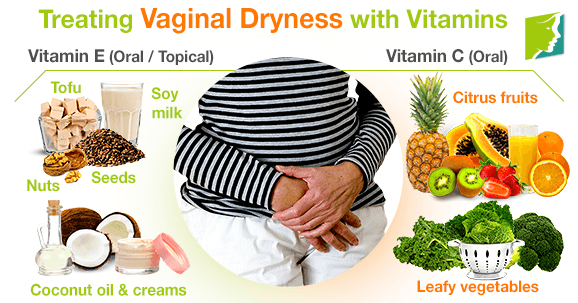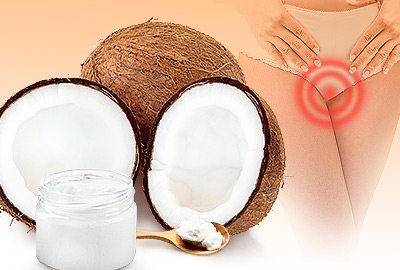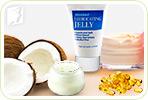Vaginal dryness is an affliction that many women suffer with during perimenopause. Also known as vaginal atrophy, dryness often brings with it pain and itchiness. It's difficult for a woman to feel attractive or confident when she is distracted by genital discomfort, which can make real issues out of sexual intercourse. However, no woman needs to suffer with dryness for long; though the primary cause of dryness during perimenopause is hormonal, using naturally nourishing remedies could reduce the severity of the symptom. Try using the following vitamins - sometimes orally, sometimes topically - to combat vaginal dryness.
Vitamin E (Oral)
Vitamin E is an antioxidant, meaning it neutralizes potentially-dangerous free radicals in the body, and in doing so strengthens the body's defenses against disease. Boosting your vitamin E intake is therefore enhancing to overall health and immunity, making bothersome conditions and infections less likely.
Vaginal dryness during perimenopause is primarily caused by natural imbalances of estrogen and progesterone that cause the vaginal tissues to become thin, less elastic, and less lubricated. Most sources of vitamin E also contain phytoestrogens, which are plant compounds that mimic the function of estrogen in the body in a way that essentially restores hormonal balance and inhibits the occurrence of hormone-derived menopause symptoms, like vaginal dryness. Increasing your intake of nuts, seeds, soymilk, and tofu is an easy way to boost your consumption of vitamin E and phytoestrogens.
Vitamin E (Topical)
In a topical context - that is, applied directly to the vagina - vitamin E exhibits antioxidant, moisturizing, and hydrating abilities. Applying a light amount of olive oil or coconut oil directly to the site of dryness will therefore nourish and lubricate the tissues in a way that will help combat dryness and reduce the likelihood of it reoccurring, promoting long-term vaginal health.
Vitamin C (Oral)
It's no secret that vitamin C enhances the immune system; like vitamin E, it is an antioxidant that neutralizes harmful molecules to protect the body and strengthen it against disease. A stronger immune system reduces susceptibility to infections and enables it to combat conditions like vaginal dryness more readily. Taking a daily vitamin C supplement and increasing your intake of citrus fruits and leafy vegetables are easy ways of boosting vitamin C levels in your body.
Vitamins are a vital part of the body's nutrition, and are a natural way to promote the correction of dryness and - by keeping the vaginal tissues moisturized and nourished - maintaining long-term genital health. You can maximize the effects of vitamin use with other natural remedies and lifestyle adjustments for dryness to speed up the treatment process, too. In the meantime, remember that the condition is one that affects the majority of women at some point in their lives, especially during perimenopause, and it's nothing to be concerned or embarrassed about.
Sources
- National Health Service Direct. (2010). Vaginal Dryness. Retrieved June 11, 2014, from http://www.nhsdirect.nhs.uk/~/media/Selfcare/FemaleSexualHealth/VaginalDryness.ashx
- National Institutes of Health. (2011). Vaginal dryness. Retrieved June 11, 2014, from http://www.nlm.nih.gov/medlineplus/ency/article/000892.htm
- National Institutes of Health. (2011). Vitamin C (absorbic acid). Retrieved June 11, 2014, from http://www.nlm.nih.gov/medlineplus/druginfo/natural/1001.html
- Office on Dietary Supplements. (2013). Vitamin E. Retrieved June 11, 2014, from http://ods.od.nih.gov/factsheets/VitaminE-HealthProfessional/




